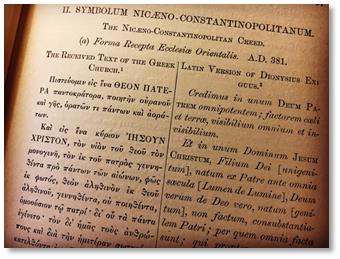From Jeffrey Weiss at the Dallas Morning News:
Shortly before she died, a family spokesman told the news media that Mrs. Graham had asked to no longer receive nutrition or liquids though a feeding tube. How she and her family reached that decision offers valuable lessons for others who will inevitably face similar situations, said professionals who work with the dying. . .
“The key ethical dimension for stopping life support is: What does the patient want?” said Dr. Arthur Caplan, director of the Center for Bioethics at the University of Pennsylvania. “What happened in her case was ethical and in accordance with her expressed wishes.” . . .
Mr. Graham is a Southern Baptist. His denomination’s emphasis on preservation of life does not specify what the “right” decision is in a case like Mrs. Graham’s, said Malcolm Yarnell, a theology professor at Southwestern Baptist Theological Seminary.
“I’m not sure I could come to the same decision that she did with a clear Christian conscience, but I can see how she could come to her decision with a clear Christian conscience,” he said.
“Ruth Graham case spotlights end-of-life planning” – Jeffrey Weiss (Dallas Morning News)




7 Comments
Malcolm Yarnell
Denny,
It was good to see you in San Antonio.
Alas, these newsarticles rarely reflect the actual conversation that occurred. Your readers may be interested in the origin of this conversation with Mr. Weiss.
Mr. Weiss began by wondering whether the Graham case was similar to that of Kervorkian or of Schiavo. In both cases, we both came to the conclusion that the comparisons were not there.
Graham’s life was decaying naturally and she apparently made her own choice to withdraw from heroic efforts to maintain a naturally decaying life.
The Schiavo case is different because Ms. Schiavo did not make her own decision, where Mrs. Graham did. The Kervorkian case is different because Mrs. Graham’s life was ending naturally whereas Kervorkian’s victims’ lives were ended unnaturally.
The Baptist Faith & Message 2000 states, “We should speak on behalf of the unborn and contend for the sanctity of all human life from conception to natural death.” We did not take a position on whether heroic measures should be maintained or not.
My preference would be to maintain heroic measures. Others may come to different conclusions. Thus, my statement to Weiss.
In Christ,
Malcolm
dennyrburk
Dear Malcom,
Thanks for commenting. I’m curious to know what others think about the family’s decision and how their choice might affect evangelical opinion on the ethics of dying. It is a tough one.
Thanks,
Denny
Matthew
I believe that a great deal of money and effort extending someone’s life a few days is not necessarily well-spent. This is different than making a value decision that someone who is a “vegetable” should just die, and it is different from helping someone commit suicide because they are depressed or in pain.
It seems to me like it is partly an issue of fighting the natural course of things. If the natural course of events is that a person is dying, then taking heroic measures to purchase extra days of life is fighting that natural course. If the natural course is that a person will live for months or years, then it is fighting that natural course to end life.
There are numerous stories where someone has hung onto life long enough for a relative or friend to arrive and bid them farewell, soon after which the person lets go and dies.
It is complicated and one could slide slopes and split hairs all day long, but at some point, pushing away the machinery and chemicals and letting go seems like a perfectly reasonable human decision at the end of one’s life.
Jen Strange
As I understand it, feeding tubes were designed to extend the life of those who had some near solution–like someone who had a stroke and temporarily lost the physical ability to eat but was going through therapy to regain that ability and therefore not need the feeding tube anymore. That is, feeding tubes are not designed to be longterm treatments, to extend life unnaturally for those bodies that have begun the miraculous process of mercifully quitting this world.
Now, I do not mean to suggest that just because something was designed for a certain purpose it cannot be used for some other one. But in this case, the design of the feeding tube must be considered, for longterm use of feeding tubes can cause other medical problems, like infection at the site of the tube itself.
Surely our Lord has been merciful to grant us innovative medical science–evidence of this is too great and too obvious to list here. However, we humans have been known to idolize this life in a way that has forced undignified extension of life and, in a political sense, insidiously infected the pro-life movement. I would cite in vitro fertilization on this account, but that’s a different issue.
I claimed above that some bodies go through a “miraculous process of mercifully quitting this world.” I mean the amazing slowing that bodies can do when they near death after a long illness, like dementia. That is, many dementia patients (my grandmother, for example) experience the slowing of body process until they just quit: their bodies require so few calories to continue operating, and their breathing slows to an unearthly pace, etc.
It seems unjust to interrupt that design. No doubt complicated to determine when to remove the “machinery and chemicals” as noted above and yet appropriate and kind and right to do so. Furthermore, it seems to be a refusal of the hope God has for us in the age to come to insist instead upon extending life unnaturally.
Jeffrey Weiss
Thanks for noticing my work! And Dr. Yarnell is exactly right about the context for his comment. Would that I had space in the dead-tree paper for all the comments and all the context I collected…1:-{)>
Jeffrey Weiss
The Dallas Morning News
debbie
nice to some celebraties here on the blog.
Ron
I’m glad this is being discussed as it is a situation everyone will face in some form or other… eventually.
Of great help to me was reading Norman Geisler’s thoughts on this issue while in seminary. He discusses the difference between what he calls “Active” and “Passive” euthanasia. The short & skinny is that active euthanasia produces death while passive allows death to occur.
Within passive euthanasia is the idea of either withholding life sustaining measure or removing life continuation measures. It sounds difficult, but his explanation is easy to understand.
After Mrs. Graham’s passing, I wrote about it on my blog which can be found at http://wabcmsal.org/pastorblog/?m=20070616
Personally, I commend the Graham family for making a difficult decision in a manner that I believe glorified God (From what I know). I believe they exemplified Philippians 1:27 in this situation.
My hope is that Christians will not wait until they are faced with such a difficult decision, but rather that they will study, pray, and seek God now to begin getting a handle on what they would hope to do. Then when (if) the time comes they follow God’s leadership based on Biblical guidelines.
Ron